The post-Cold War international order continues to generate contradictions and vulnerabilities. Stability and predictability based on trust and effective institutions are being undermined by both old and new conflicts. Cooperation increasingly gives way to unilateral actions as states and societies face a broadening spectrum of security threats.
One of the epicenters of international tensions lies in Eastern Europe – a region marking a geopolitical fault line. Here, the status quo looks particularly perilous since the erosion of the rules of international conduct is taking place in the absence of a meaningful dialogue. Even expert forums, which are intended to seek solutions in the interests of peace and cooperation, have become part of the propaganda and information war. Essentially, existing expert platforms only generate more mutual accusations and thus further elevate international tensions. As a result, no real discussion about Eastern Europe’s present or future takes place.
Belarus is located at the heart of Eastern Europe. The country’s geographic position makes it particularly vulnerable to negative developments in the region. Escalating international tensions automatically amplify threats to Belarus’s security and complicate the country’s economic development. Moreover, historically, Belarus repeatedly fell victim to great power confrontation and became a battleground where rival armies clashed. Therefore, it has a strong “vested interest” in the prevention of major conflict in Eastern Europe.
Since the beginning of 2015, the Minsk Dialogue Track-II Initiative has provided an expert platform to explore ways of minimising regional tensions. Eleven international conferences and numerous thematic discussions have taken place and gathered representatives from various countries and international organisations. The Minsk Dialogue Forum will represent the next milestone in the initiative’s development. It will launch a large annual gathering of leading experts from Eastern Europe, the EU, Russia, the United States, and China. It will provide a prominent forum for discussions about present and future challenges to regional and international security.
Forum partners


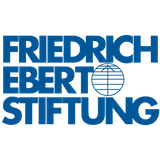
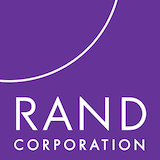
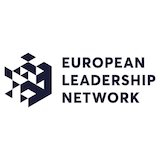

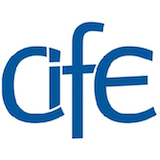
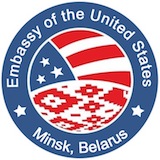
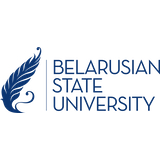
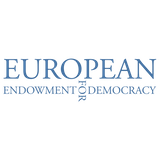

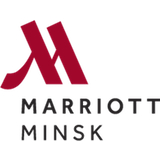

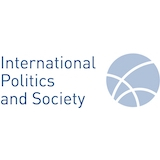
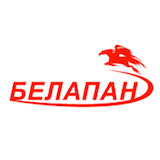

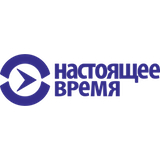
Wednesday, May 23
|
14.00-15.00 |
Registration of the participants |
|
15.00 |
Forum begins |
|
15.00-15.30 |
Welcome remarks Yauheni Preiherman Head, Minsk Dialogue Track-II Initiative Wolfgang Sender Belarus Country Director, Konrad Adenauer Foundation, Germany Opening address Vladimir Makei Minister of Foreign Affairs of Belarus |
|
15.30-17.00 |
Inaugural plenary What Does the Changing World Order Hold for Eastern Europe? The system of international relations faces its most dramatic challenge for decades. Geopolitical turbulence has spread to more and more parts of the world, which poses a question about whether the world order is undergoing a fundamental change and, if so, what this change is all about. The inaugural session will focus on the main trends in international affairs and their immediate and longer-term implications for Eastern Europe. Sergey Glaziev Advisor to the Russian President, Russia Erkki Tuomioja Member of the Parliament of Finland; Minister of Foreign Affairs of Finland (2000-2007; 2011-2015), Finland Alexandre Guessel Director of Political Affairs, Council of Europe Thomas Graham Managing Director, Kissinger Associates, USA Sun Zhuangzhi Director, Institute of Russian, Eastern European and Central Asian Studies, Chinese Academy of Social Sciences, China Hannes Swoboda Director, International Institute for Peace; former Member of the European Parliament, Austria Moderator Jovan Kovačić President, East-West Bridge, Serbia |
|
17.00-17.30 |
Coffee break |
|
17.30-19.00 |
Plenary session Looking inside the “Black Box” of East European Security. Whereas most international discussions about European security are dominated by great power narratives, little or no attention is paid to what smaller East European states think. In spite of multiple differences in threat perceptions and security narratives, these states are usually treated in security debates as “black boxes”. The session will examine the common and the divergent in how East European states feel about their own security and will look for common denominators in the region. Oleg Kravchenko Deputy Minister of Foreign Affairs of Belarus Volodymir Khandogyi President, Ukrainian Foreign Policy Association; acting Minister of Foreign Affairs of Ukraine (2009), Ukraine Vladislav Kulminski Executive Director, Institute for Strategic Initiatives; former Political Advisor to the Prime Minister of Moldova, Moldova Gwendolyn Sasse Director, Centre for East European and International Studies (ZOiS), Germany Vyacheslav Kholodkov Head, Centre for the Near Abroad Studies, Russian Institute for Strategic Studies, Russia Eugene Rumer Director and Senior Fellow, Russia and Eurasia Programme, Carnegie Endowment for International Peace, USA Moderator Wolfgang Sender Belarus Country Director, Konrad Adenauer Foundation, Germany |
|
19.00-21.00 |
Reception |
|
21.00-22.30 |
Parallel night-owl sessions (under the Chatham House Rule) Session 1. How Deeply Frozen is Transnistria? Dirk Schuebel Head of Division, Eastern Partnership Bilateral, European External Action Service Timur Onica Programme Officer East, European Endowment for Democracy, Belgium-Moldova Andrey Devyatkov Senior Research Fellow, Institute of Economy, Russian Academy of Sciences, Russia Tony van der Togt Senior Research Fellow, Clingendael Netherlands Institute of International Relations, Netherlands Eugene Chausovsky Senior Eurasia Analyst, Stratfor, USA Jörg Radeke Managing Economist, Berlin Economics, Germany Moderator Elena Korosteleva Professor of International Politics, Director of the Global Europe Centre, University of Kent, UK
Session 2. Minsk Accords and a Peacekeeping Mission in the Donbas: Mission (Im)Possible? Hanna Shelest Editor-in-Chief, UA: Ukraine Analytica, Ukraine Sergey Markedonov Associate Professor, Russian State University for the Humanities; Expert, Russian International Affairs Council, Russia Jana Kobzova Policy Director, Rasmussen Global, Slovakia Andrew Wilson Senior Policy Fellow, European Council on Foreign Relations, UK Vladimir Socor Senior Fellow, Jamestown Foundation, USA Moderator Balázs Jarábik Nonresident Scholar, Russia and Eurasia Programme, Carnegie Endowment for International Peace, Slovakia
Session 3. What Can We Learn from Past Failures to Modernise European Security Arrangements? Sir Roderic Lyne Adviser, Russia and Eurasia Programme, Chatham House; UK Ambassador to Russia (2000-2004), UK Alexander Iskandaryan Director, Caucasus Institute, Armenia Andrey Sushentsov Head, Analytical Agency “Foreign Policy”; Programme Director, Valdai Discussion Club, Russia Valbona Zeneli Director of the Black Sea and Eurasia Program, College of International and Security Studies at the George C. Marshall European Center, Germany-Albania Paul Révay Member of the Board of Trustees, “Friends of Europe” (Belgium), France Moderator Tatiana Romanova Associate Professor, Jean Monnet Chair, School of International Relations, St. Petersburg University, Russia
|
Thursday, May 24
|
07.00-08.00 |
Breakfast for international participants (Minsk Marriot Hotel’s restaurant, ground floor) |
|
8.30 |
Transfer from the Minsk Marriott Hotel to the Exhibition Centre (14 Pobeditely Avenue) |
|
10.00-12.30 |
Plenary session How to Make Eastern Europe an Area of Cooperation rather than Confrontation? Alexander Lukashenko President of the Republic of Belarus Thomas Greminger Secretary General, Organisation for Security and Cooperation in Europe James Appathurai Deputy Assistant Secretary General for Political Affairs and Security Policy, NATO Nikolai Bordyuzha Secretary General, Collective Security Treaty Organisation (2003-2017), Russia Maira Mora Director General, Council of the Baltic Sea States Christine Muttonen President of the Parliamentary Assembly, Organisation for Security and Cooperation in Europe (2016-2017), Austria Moderator Yauheni Preiherman Head, Minsk Dialogue Track-II Initiative |
|
12.30 |
Transfer to Minsk Marriott Hotel (20 Pobeditely Avenue) |
|
13.00-14.00 |
Lunch |
|
14.00-16.00 |
Break-out interactive sessions organised by the Forum’s partners Break-out session 1. Getting out from in-between. In partnership with the RAND Corporation (USA) and Friedrich Ebert Foundation (Germany) Samuel Charap Senior Political Scientist, RAND Corporation, USA Andrey Zagorskiy Head, Department of Arms Control and Conflict Resolution Studies, Institute of World Economy and International Relations; Professor, MGIMO-University, Russia Oleksiy Semeniy Director, Institute for Global Transformations, Ukraine Commentator Alexander Iskandaryan Director, Caucasus Institute, Armenia Moderator Reinhard Krumm Head of Office, FES Regional Office for Cooperation and Peace in Europe, Germany
Break-out session 2 Making Conventional Arms Control Fit for the XXI Century. In partnership with the European Leadership Network (UK) Werner Fasslabend President, Austrian Institute for European and Security Policy; Federal Minister of Defense of Austria (1990-2000), Austria Andrei Tsarik Head, Verification Directorate, International Military Cooperation Department, Ministry of Defence, Belarus Joris Voorhoeve Chair, Netherlands Advisory Commission on Peace and Security AIV; Minister of Defence of the Netherlands (1994-1998), Netherlands Łukasz Kulesa Research Director, European Leadership Network, UK-Poland Aliaksandr Alesin Military expert, Belarus Moderator Sir Adam Thomson Director, European Leadership Network; UK Permanent Representative to NATO (2014-2016), UK
Break-out session 3. Roundtable reflection 10 Years of the Eastern Partnership: Shaping a More Strategic Approach Together. In partnership with the Austro-French Centre for Rapprochement in Europe (Austria-France) and Centre international de formation européenne (CIFE) (France-Germany) Valery Varanetsky Chairman, Standing Committee on International Affairs, House of Representatives of the National Assembly, Belarus Thomas Buchsbaum Special Envoy for the Eastern Partnership, Austrian Federal Ministry for Europe, Integration and Foreign Affairs, Austria Ghia Nodia Director, International School of Caucasus Studies; Minister of Education and Science of Georgia (2008), Georgia Céline Marangé Research Fellow, Institute of Strategic Research at the French Ministry of Defence (IRSEM), France Hovhannes Nikoghosyan Adjunct Lecturer, American University of Armenia, Armenia Carmen Claudín Associate Senior Research Fellow, Barcelona Centre for International Relations, Spain Moderator Florent Marciacq Deputy Secretary General, Austro-French Centre for Rapprochement in Europe, Austria-France |
|
16.00-16.30 |
Coffee break |
|
16.30-18.00 |
Plenary session The Belt and Road Initiative in Eastern Europe: Towards New Economic and Security Synergies by Breaking Up with Old Geopolitics? The Belt and Road Initiative raises extraordinary expectations but, at the same time, causes serious concerns in different parts of Eurasia. Some believe that China’s grand projects will alter the geopolitical map of the continent by embedding mutually beneficial cooperation beyond existing divides. Others worry that Beijing’s strategic ambitions will only add to present-day geopolitical tensions. This session will discuss the implications of the Belt and Road Initiative and other China-led cooperation projects for various aspects of security in Eastern Europe. Munira Shahidi Professor, Tajik National University, Tajikistan Andrey Sushentsov Head, Analytical Agency “Foreign Policy”; Programme Director, Valdai Discussion Club, Russia Li Qinggong Director, Centre for National Security, Eurasian System Science Research Association, China Anar Valiyev Associate Professor, ADA University, Azerbaijan Trine Flockhart Professor, University of Southern Denmark, Denmark Suren Sargsyan Co-founder, International and Comparative Law Centre of Armenia; former advisor to the Prime Minister of Armenia, Armenia Moderator Eugene Chausovsky Senior Eurasia Analyst, Stratfor, USA |
|
18.00-19.00 |
In conversation (Dis)Continuity in the EU’s Foreign and Security Policy? Johannes Schraps Member of Bundestag, Germany Charles Grant Director, Centre for European Reform, UK Moderator Tobias Flessenkemper Programme Director and Senior Fellow, Centre international de formation européenne (CIFE), France-Germany |
|
19.00-19.20 |
Presentation of the GCRF COMPASS Project implemented by the University of Kent and University of Cambridge in cooperation with the Belarusian State University, ADA University (Azerbaijan), Tajik National University, and the University of World Economy and Diplomacy (Uzbekistan). Elena Korosteleva Professor of International Politics, Director of the Global Europe Centre, University of Kent, UK Siddharth Saxena Director, Central Asia Programme, University of Cambridge, UK |
|
19.20-21.00 |
Reception Key-note address Baroness Suttie Lords Spokesperson, House of Lords, UK |
|
21.00-22.30 |
Parallel Night-Owl Sessions (under the Chatham House Rule) Session 1. Implications of the Sanctions War between Russia and the West for Eastern Europe. Valery Kantorov Advisor to the Executive Director, Alexander Gorchakov Public Diplomacy Fund, Russia Volodymir Fesenko Chairman of Board, Penta Centre, Ukraine Joseph Vann Director of the Counter Transnational Organised Crime Programme, George C. Marshall European Centre for Security Studies, USA Ulf Schneider Managing Partner, Schneider Group; Co-Chairman, Working group on the common economic space from Lisbon to Vladivostok, Germany Jacek Giedrojć Founding Partner, Warsaw Equity Group, Poland Moderator Daniel Krutzinna Managing Partner, Civitta; Supervisory Board Member, Development Bank of the Republic of Belarus, Belarus
Session 2. NATO’s Enhanced Forward Presence: Implications for Eastern Europe? Vladimir Senko Minister of Foreign Affairs of Belarus (1994-1997), Belarus James Appathurai Deputy Assistant Secretary General for Political Affairs and Security Policy, NATO Nadezhda Arbatova Head, Department for European Political Studies, Primakov National Research Institute of World Economy and International Relations (IMEMO), Russian Academy of Sciences, Russia Oleksiy Semeniy Director, Institute for Global Transformations, Ukraine Tobias Bunde Head of Policy and Analysis, Munich Security Conference Foundation, Germany Moderator Anna Maria Dyner Head, Eastern Europe Programme, Polish Institute for International Affairs (PISM), Poland
Session 3. Belarus’s Foreign Policy in the Regional Context Pyotr Krauchanka Minister of Foreign Affairs of Belarus (1991-1994) Grigory Ioffe Professor, Radford University, USA Balázs Jarábik Nonresident Scholar, Russia and Eurasia Programme, Carnegie Endowment for International Peace, Slovakia Kamil Kłysiński Senior Fellow, Department for Ukraine, Belarus and Moldova, Centre for Eastern Studies (OSW), Poland Andrey Kazakevich Director, Institute of Political Studies “Political Sphere”, Belarus Commentators Paul Hansbury Associate Fellow, Minsk Dialogue Track-II Initiative, UK Andrey Vardomatsky Founder, “NOVAK”, Belarus Moderator Wolfgang Sender Belarus Country Director, Konrad Adenauer Foundation, Germany
|
Friday, May 25
|
08.30-09.30 |
Working breakfast Common Economic Space from Lisbon to Vladivostok: a Fantasy or a Future Reality? (in partnership with the Schneider Group) Tony van der Togt Senior Research Fellow, Clingendael Netherlands Institute of International Relations, Netherlands Bernhard Thies President, European Committee for Electrotechnical Standardization (CENELEC); Chairman of the Board of Directors, DKE, Germany Kamil Kłysiński Senior Fellow, Department for Ukraine, Belarus and Moldova, Centre for Eastern Studies (OSW), Poland Commentators Sergey Shukhno Director, Department of Integration Development, Eurasian Economic Commission Alexandra Dienes Research Associate, Friedrich Ebert Regional Office for Cooperation and Peace in Europe, Austria Moderator Ulf Schneider Managing Partner, Schneider Group; Co-Chairman, Working group on the common economic space from Lisbon to Vladivostok, Germany |
|
9.30-10.30 |
Morning session The Eurasian Economic Union: Current and Future Trajectories Sergey Shukhno Director, Department of Integration Development, Eurasian Economic Commission Aleksey Matsevilo Head, General Department of Economic Integration, Ministry of Economy of Belarus Michael Emerson Associate Research Fellow, Centre for European Policy Studies (CEPS), Belgium Dmitry Chervyakov Economist, German Economic Team Belarus, Germany Kirill Entin Counsellor, Court of the Eurasian Economic Union Moderator Viktor Shadurski Dean, Faculty of International Relations, Belarusian State University, Belarus |
|
10.30-12.00 |
Plenary session Gaps in Security Regimes and Institutional Lacunae in Eastern Europe: Can Regional and Sub-Regional Organisations Do More? Existing security regimes have been highly instrumental in restraining provocative behaviour by state actors. Yet, they have obviously lagged behind today’s security environment. Growing military and political tensions point to the necessity to close multiple gaps and adapt security regimes to the needs of the present day. This, in turn, leads to the discussion about the relevance and effectiveness of regional and sub-regional international organisations in the realm of security. The session will explore Eastern Europe-specific gaps in security regimes and which institutional lacunae can be addressed as a matter of priority. Joris Voorhoeve Chair, Netherlands Advisory Commission on Peace and Security AIV; Minister of Defence of the Netherlands (1994-1998), Netherlands Ivan Antonovich Minister of Foreign Affairs of Belarus (1997-1998), Belarus Tinatin Khidasheli Minister of Defence of Georgia (2015-2016), Georgia Andrey Zagorskiy Head of Department of Arms Control and Conflict Resolution Studies, Institute of World Economy and International Relations; Professor, MGIMO-University, Russia Bruce McClintock CEO, Zenith Advisors Group; policy analyst, RAND Corporation; former defence attaché in the US Embassy in Russia, USA Moderator Dzianis Melyantsou Belarus’s Foreign Policy Programme Coordinator, Minsk Dialogue Track-II Initiative |
|
12.00-12.30 |
Coffee break |
|
12.30-13.30 |
Plenary session The Old and the New in East European Security: Discussing Ways Forward Sir Adam Thomson Director, European Leadership Network; UK Permanent Representative to NATO (2014-2016), UK Samuel Charap Senior Political Scientist, RAND Corporation, USA Sergey Markedonov Associate Professor, Russian State University for the Humanities; Expert, Russian International Affairs Council, Russia Volodymir Fesenko Chairman of Board, Penta Centre, Ukraine Reinhard Krumm Head of Office, FES Regional Office for Cooperation and Peace in Europe, Germany Moderator Yauheni Preiherman Head, Minsk Dialogue Track-II Initiative |
|
13.30 |
Closing remarks Forum adjourns |
|
13.45-14.45 |
Lunch Excursion to the Strochitsy village (optional) |
